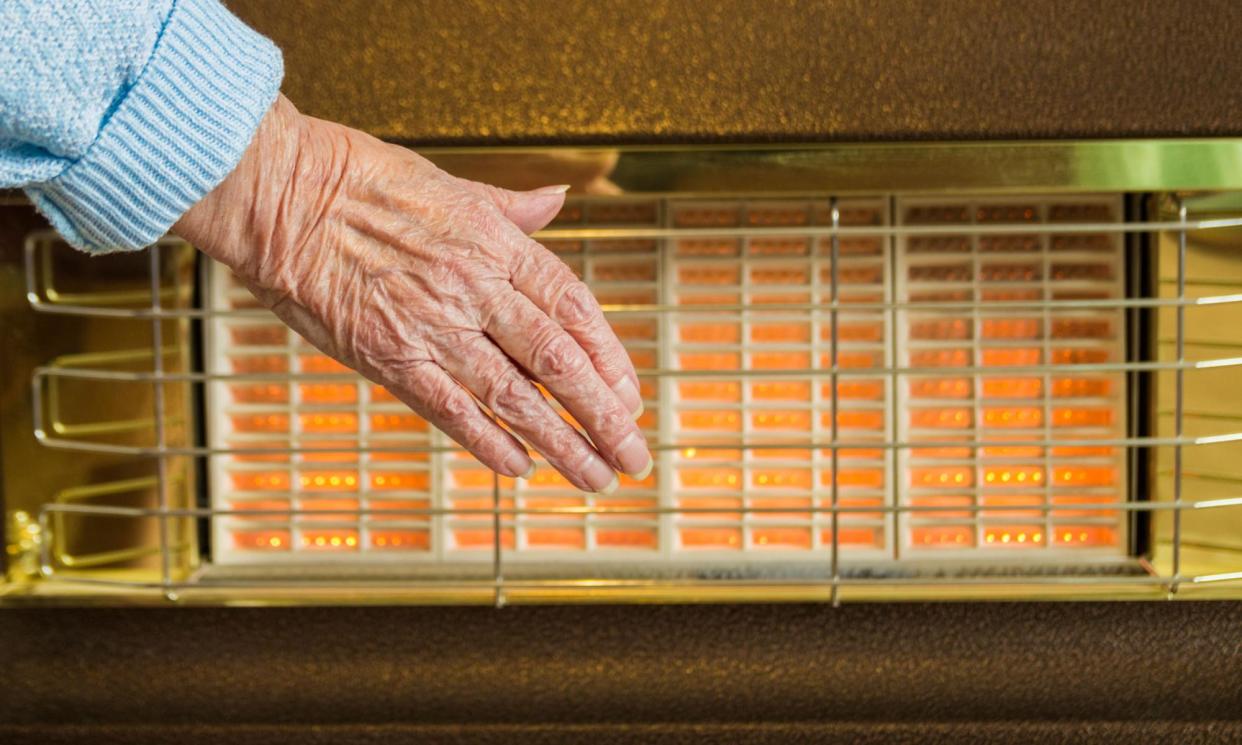Leak reveals Tory plan to cut cold weather cash for disabled people

Hundreds of thousands fewer disabled people could receive cold weather payments under the Conservatives’ planned post-election disability benefit reforms, according to an internal government report seen by the Observer.
The briefing, by civil servants at the Department for Work and Pensions (DWP), says that under the plans, new applicants for disability benefits in England and Wales would only qualify for cold weather payments if they passed a much harsher assessment than exists at present.
“We recognise that this recommendation will result in fewer low-income people being eligible for [cold weather payments],” the briefing says, adding that some higher-income people will gain access to them.
Cold weather payments worth £25 for every week of freezing weather between November and March are automatically given to people on certain benefits.
Related: No 10 denies plan to drop fuel payments to maintain pensions’ triple lock
Working-age disabled people qualify for the payments via the work capability assessment (WCA), which decides whether people are sufficiently sick or disabled to get disability payments through universal credit.
The Conservatives intend to abolish the WCA after the next general election. Instead, universal credit disability payments will go to people who qualify for the separate personal independence payment (Pip) disability benefit.
The WCA became notorious in the 2010s for unfairly refusing disability benefit. But it has softened in recent years and now about 80% of applicants qualify for higher benefits or reduced requirements to look for work. By contrast, the Pip benefit assessment rejects nearly half of new applications.
The DWP briefing, which was written in October, recommends that once the WCA is scrapped in 2026, newly disabled people will need to pass the Pip benefit assessment in order to qualify for cold weather payments.
The briefing rejects the creation of a separate new qualifying test, as it claims it would add complexity to a system that has just been simplified.
“This is further proof of the brutal impacts that the government’s proposed overhaul of the disability benefits system will have on disabled people unable to earn an adequate income through paid employment, yet consigned to poverty through denial of social security payments,” said Ellen Clifford of Disabled People Against Cuts. “Many disabled people are unable to work full-time hours and are much more likely to be in low-paid employment than non-disabled people.”
It is likely that in the long run, hundreds of thousands of disabled people who would previously have qualified for cold weather payments will no longer do so. The briefing says that, as of February 2023, there were 850,000 claimants who qualified for benefit through the WCA and did not have a Pip.
However, the changes will not affect existing claimants until 2029 at the earliest, and at least some of them will receive transitional protection for an unspecified period after that. The immediate impact from 2026 will be on those applying for benefits for the first time.
Under the changes, about 460,000 existing Pip claimants would qualify for cold weather payments for the first time. These claimants are less likely to be on the lowest incomes, and overall the changes are predicted to cut spending on cold weather payments by about £12m.
Peter Smith, director of policy at fuel poverty charity National Energy Action, said: “The additional energy costs faced by households with long-term disabilities is well evidenced, as is the mental and physical strain this brings.
“If these changes are made and eligibility is narrowed, the impact could be life-threatening – with fewer very vulnerable households able to access this lifeline during exceptionally cold weather or made to jump through ever more hoops.
“The UK government should be looking to increase support for energy bills for the most vulnerable, not restricting it for people who desperately need help.”
The DWP briefing also recommends other government departments apply the same changes in eligibility to entitlements such as free childcare, warm home discounts and help with healthcare costs, although disabled people may be able to qualify for these through other routes.
The DWP said: “While we do not comment on speculation, we have been clear that our structural reforms will be rolled out gradually from 2026 and transitional protection will ensure nobody experiences a financial loss at the point of moving onto the new system. We will always ensure our welfare system supports the most vulnerable, having made over 1.1m cold weather payments this winter, and will set out full details on any further reforms in due course.”


